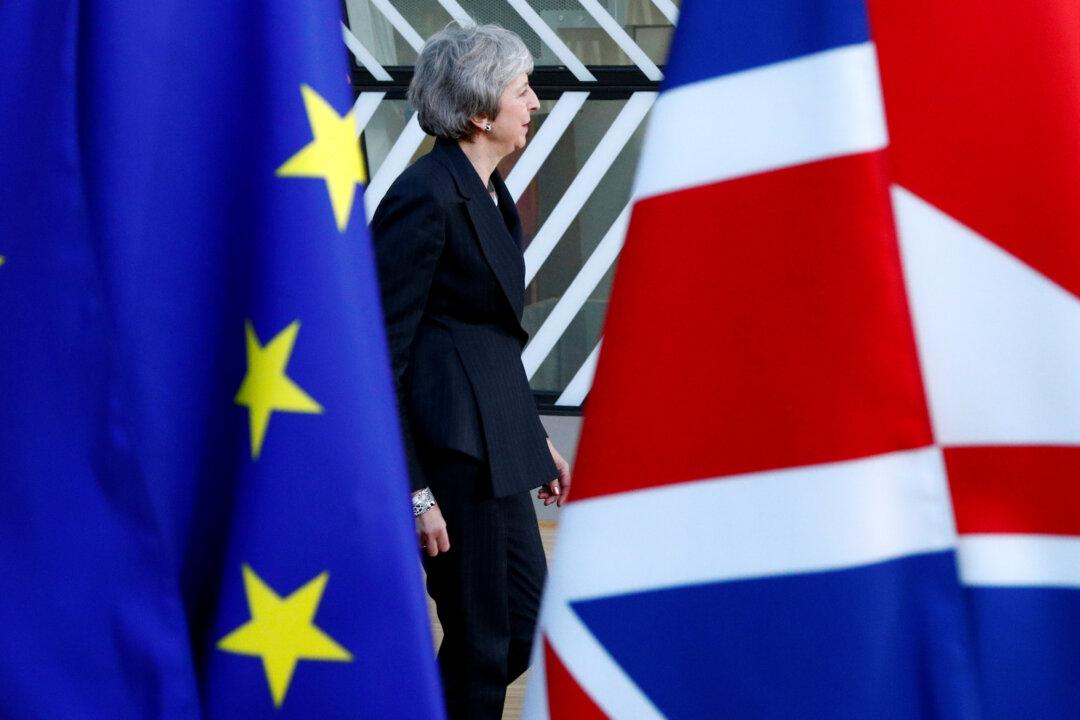LONDON—Britain will begin rehearsals for the possible chaos of a “no-deal” Brexit on Jan. 7 by testing how the road network copes with a backup of about 150 trucks caused by a disruption at its most important trading gateway to continental Europe.
Prime Minister Theresa May is trying to force her Brexit deal through Parliament, but if it is rejected, the United Kingdom will either leave without a deal on March 29 or have to delay Brexit. May has repeatedly warned that if lawmakers don’t approve her deal, the world’s fifth-largest economy will leave the EU without one, a nightmare scenario for many big businesses who fear disruption to trade.





